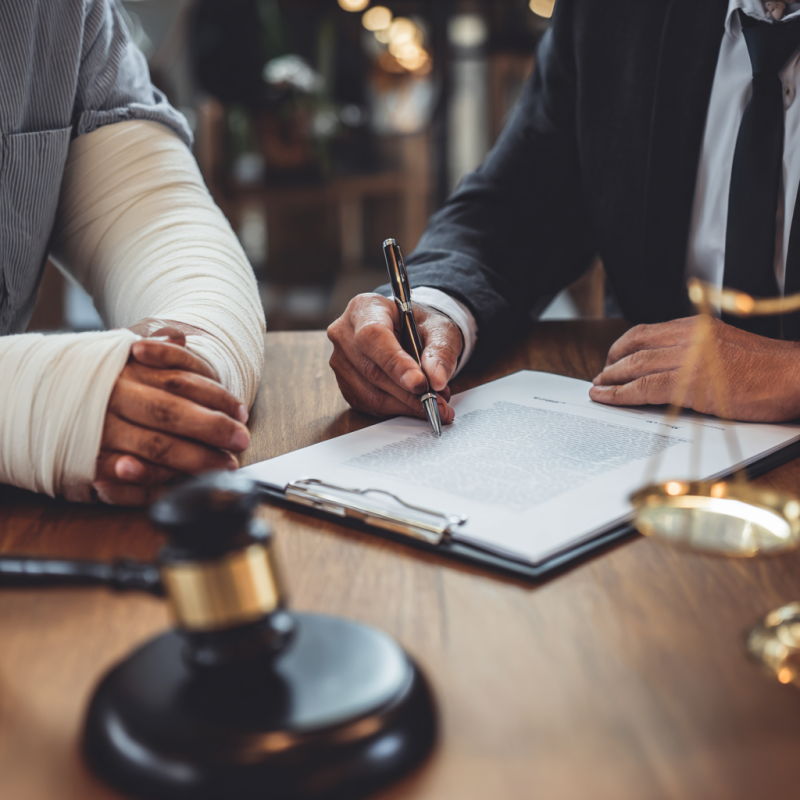When Do I Need a Personal Injury Law Attorney?


Learn When to Hire a Personal Injury Law Attorney and Why It Matters
When do I need a personal injury law attorney? You might ask this if you’ve been hurt in a crash or a slip and fall and now face confusing bills or pushy insurers. Studies by the Insurance Research Council show that accident victims with legal representation often recover settlements three times higher than those without counsel. Good news, you don’t have to figure it out alone. We’ll walk you through the key signs that it’s time to call a personal injury lawyer so you can make informed decisions and focus on getting better.
Key idea: talk to an attorney when injuries are serious, fault is contested, insurers lowball your claim, or deadlines are looming.
Severity and medical expenses
If you’ve suffered injuries that require hospitalization, surgery, or ongoing therapy, the costs can stack up fast. Medical bills, rehabilitation, and even future care all add to your financial burden.
At this point, a lawyer can help you:
- Collect and organize medical records
- Forecast long-term treatment expenses
- Document lost wages and diminished earning capacity
- Negotiate for coverage of future care needs
Once your out-of-pocket costs exceed a few thousand dollars, you benefit from an expert who knows how to value both current and future expenses. An attorney works with medical experts, gathers crucial evidence, and fights for compensation that reflects your full recovery needs. If you’re curious about legal fees, see our guide on how much does a personal injury law attorney charge.
Disputed liability or fault
Sometimes the question of “who’s at fault” isn’t clear. Insurers may deny responsibility or shift blame to you.
You should consider a lawyer if:
- Multiple drivers claim the other party ran a red light
- You were injured on someone else’s property with no clear hazard
- Eyewitness accounts conflict or no witnesses exist
- Complex tracking data (like black-box reports) is needed
A personal injury law attorney investigates, hires experts, and handles depositions to establish liability. You’ll benefit from evidence gathering, witness interviews, and skilled negotiation. Learn more about lawyer roles on what a personal injury law attorney does.
Insurance pushback and lowball offers
Insurance companies aim to protect profits, not pay every dollar you deserve.
Watch for these red flags:
| Symptom | Likely cause | How a lawyer helps |
| Initial settlement far below your costs | Insurer minimizes payout to reduce expenses | Attorney demands full documentation, expert input |
| Claim denied without clear reason | Insurer cites missing evidence or shifts blame | Lawyer gathers records and submits a formal rebuttal |
| Delayed processing or radio silence | Adjuster tactics or staffing issues | Counsel files complaints to speed up the review |
If your insurer drags its feet or offers next to nothing, legal counsel levels the playing field. An attorney knows the tactics and pushes back with facts and precedent.
Time limits and legal deadlines
Every state sets a statute of limitations for personal injury claims (typically one to three years). Miss that deadline and you usually lose the right to sue.
Key actions:
- Check your state’s filing deadline, some allow only one year for minor claims
- Mark court dates and evidence-gathering milestones on your calendar
- Hire an attorney well before your deadline to ensure timely filings
A lawyer not only tracks deadlines but handles paperwork, court fees, and procedural rules. If you’re unsure when to act, our guide on when should i hire a personal injury attorney near me can help you plan.
Complex cases or multiple parties
Some accidents involve product defects, medical malpractice, or more than one liable party.
In these situations:
- You may need expert witnesses in engineering, medicine, or accident reconstruction
- Multiple insurers can point fingers at each other to avoid payouts
- Legal procedures like discovery and depositions become more involved
An attorney coordinates these moving parts, manages communications with all parties, and ensures your claim stays on track. Complex litigation demands professional oversight to protect your interests.
When do I need a personal injury law attorney: summary and next steps
It’s time to call a personal injury law attorney if your injuries require long-term medical care or come with hefty bills, if fault is disputed or liability isn’t clear, if insurers are lowballing or denying your claim without justification, if deadlines are approaching and timely filings are needed, or if your case involves multiple parties or complex evidence. If any of these situations apply, don’t wait, reach out for a consultation with a personal injury law attorney who can guide you toward fair compensation. You deserve expert support while you focus on your recovery.
Don’t Risk Delays or Lowball Settlements: Call for a Free Case Review Now
If you’re still wondering when do I need a personal injury law attorney, the answer might be right now. Reach out today and get the guidance you need to protect your future and your finances. Don’t let the insurance company take advantage of your inexperience.
Frequently asked questions
1. What does a personal injury law attorney do?
A personal injury law attorney helps injured clients by evaluating claims, gathering evidence, negotiating with insurers, and representing them in court if needed to secure compensation for medical bills, lost income, and pain.
2. How to choose a personal injury law attorney?
When deciding how to choose a personal injury law attorney, consider experience, past results, communication, and fees. Consult multiple attorneys to find the best fit.
3. How much does a personal injury law attorney charge?
Most personal injury attorneys work on contingency, paying only if you win, usually 25%–40% of the settlement. Hourly rates and flat fees are less common.
4. What questions to ask a personal injury law attorney?
See what questions to ask a personal injury law attorney. Ask about experience, success rate, fees, and communication to ensure confidence in handling your case.
5. How long does a personal injury case take?
Duration varies, minor cases may settle in a few months, while complex litigation can take one to two years. Your attorney can give a better timeline based on your facts.
6. What questions should I ask a personal injury law attorney?
Before hiring, inquire about their trial experience, past settlement amounts, communication process, and expected fees. You can find a full list of key queries in our article on what questions to ask a personal injury law attorney.
Key takeaways
- Severe injuries and mounting medical bills usually warrant legal help
- Disputed fault and liability call for professional investigation
- Lowball settlement offers often improve with attorney intervention
- Statute of limitations are strict, so act before deadlines
- Complex cases with multiple defendants need expert coordination
- You’ll protect your rights and case value by consulting a lawyer early
